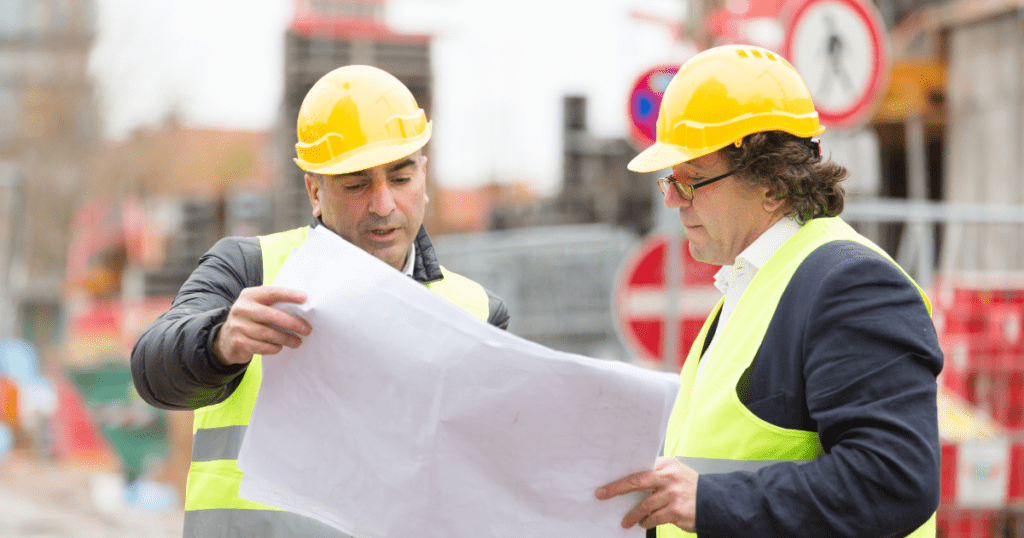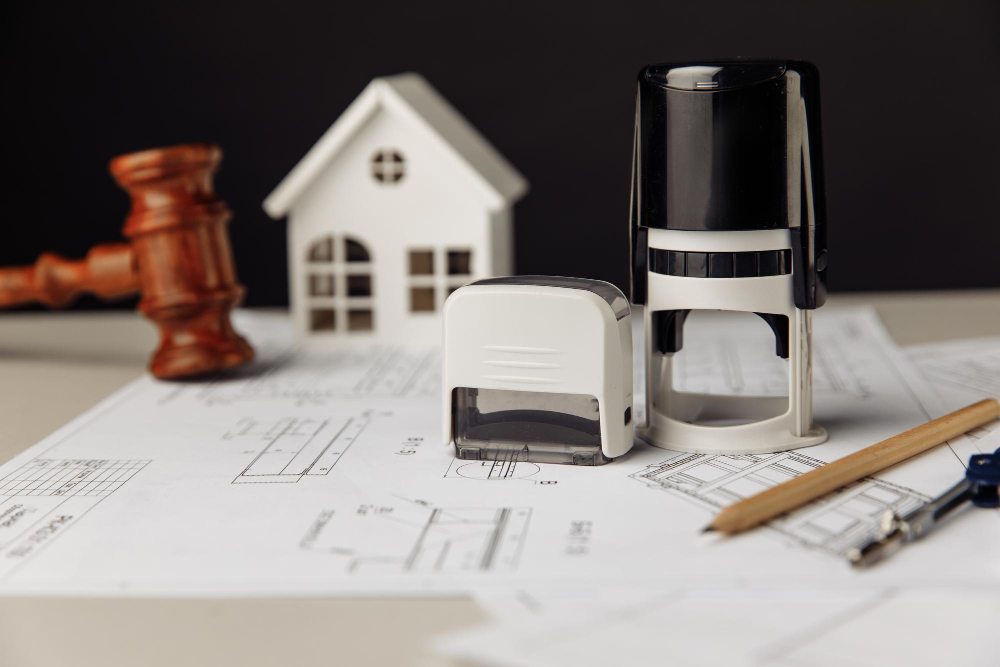The construction industry is a bustling symphony of diverse expertise, each instrument playing a unique role in crafting the buildings and structures that shape our world. Amidst the architects who dream, the engineers who design, and the laborers who build, there exists a group of unsung heroes known as mechanical contractors. These skilled professionals form the backbone of construction projects, ensuring the intricate dance of mechanics and systems that make buildings functional, comfortable, and sustainable.

Mechanical contractors are the wizards behind the scenes, conjuring the magic of heating, ventilation, air conditioning (HVAC), plumbing, and more. Their importance lies not only in their ability to install and maintain these systems but in their profound impact on the quality of life within the spaces they help create. Imagine inhabiting a building with erratic heating, stale air, or unreliable plumbing – the discomfort would be palpable. Mechanical contractors, through their expertise, transform mere bricks and mortar into vibrant, livable environments.
Consider the air you breathe indoors – a crucial factor often taken for granted. Mechanical contractors orchestrate the intricate ballet of ventilation, ensuring a constant flow of fresh air that sustains well-being and productivity. When you step into a room with just the right temperature, owe it to these unsung maestros who regulate HVAC systems, maintaining a harmonious equilibrium between external conditions and internal comfort.
Yet their contributions extend beyond mere functionality. In an era where sustainability is paramount, mechanical contractors play a pivotal role in crafting environmentally conscious structures. Their innovative use of technology and materials reduces energy consumption and carbon footprint, contributing to a greener future.
As we embark on a journey to unveil the pivotal role of mechanical contractors, we delve into the heart of construction’s intricate web. From collaborating with various trades to integrating cutting-edge technologies, their influence ripples through every corner of the industry. Join us as we shed light on these hidden champions who elevate construction from the mundane to the extraordinary, ensuring that every structure not only stands tall but thrives within its purpose.
What Are Mechanical Contractors?
Mechanical contractors are highly skilled professionals who specialize in the installation, maintenance, and servicing of mechanical systems within buildings and construction projects. These systems encompass a wide range of essential components, including heating, ventilation, air conditioning (HVAC), plumbing, fire protection, refrigeration, and more.
Mechanical contractors play a vital role in ensuring that these systems operate effectively, efficiently, and safely to create comfortable and functional environments for occupants.
Their expertise goes beyond just installing equipment. Mechanical contractors are involved in the entire lifecycle of mechanical systems within a building – from the initial planning and design stages to the ongoing maintenance and repairs. They work closely with architects, engineers, electricians, and other construction professionals to ensure that all systems are integrated seamlessly into the overall building design.
Key Responsibilities of Mechanical Contractors:
- Design and Planning: Mechanical contractors collaborate with architects and engineers to develop comprehensive plans for mechanical systems that meet the specific needs of a building. This includes calculating load requirements, selecting appropriate equipment, and designing layouts that optimize efficiency and functionality.
- Installation: They are responsible for installing a wide variety of mechanical equipment, such as heating units, cooling systems, ventilation ducts, plumbing pipes, and more. Proper installation is crucial to ensure that systems operate reliably and efficiently.
- Maintenance and Repairs: Mechanical contractors provide routine maintenance to ensure that mechanical systems continue to operate at peak performance. They also troubleshoot and repair any issues that may arise, preventing potential disruptions and costly downtime.
- Energy Efficiency: With a growing emphasis on sustainability, mechanical contractors play a key role in designing and implementing energy-efficient systems. They may recommend and install technologies that reduce energy consumption and minimize environmental impact.
- Compliance and Safety: Mechanical contractors are well-versed in building codes, regulations, and safety standards related to mechanical systems. They ensure that installations meet all necessary requirements to ensure the safety of occupants and compliance with legal guidelines.
- Upgrades and Retrofits: As technology evolves and building requirements change, mechanical contractors may be involved in upgrading or retrofitting existing systems to meet modern standards and improve efficiency.
- Project Management: Mechanical contractors often oversee their teams and coordinate with other trades to ensure that mechanical installations are completed on time and within budget.
In essence, mechanical contractors are the invisible hands that breathe life into the functional aspects of buildings. Their expertise is essential for creating environments that are not only aesthetically pleasing but also comfortable, safe, and efficient. Whether it’s ensuring a cozy living space, maintaining optimal air quality, or providing reliable plumbing and heating, mechanical contractors are the backbone of modern construction, working tirelessly to ensure that the gears of a building keep turning seamlessly.
The Key Importance of Mechanical Contractors
Mechanical contractors hold a pivotal role in the construction industry, contributing to the creation of functional, comfortable, and efficient built environments. Their expertise extends far beyond the nuts and bolts of mechanical systems, encompassing a range of essential contributions that shape the quality of our living and working spaces. Here’s a closer look at the key importance of mechanical contractors:
- Ensuring Functional Comfort:
Mechanical contractors play a central role in establishing the comfort levels within buildings. By designing and installing heating, ventilation, and air conditioning (HVAC) systems, they ensure that occupants enjoy optimal temperatures, humidity levels, and air quality. This translates to spaces where people can thrive, work, and relax comfortably, regardless of the external climate.
- Quality Indoor Air:
Proper ventilation is essential for maintaining healthy indoor air quality. Mechanical contractors design ventilation systems that continuously exchange stale indoor air with fresh outdoor air, reducing the concentration of pollutants and allergens. This contributes to healthier and more productive indoor environments. - Efficient Plumbing and Water Management:
Mechanical contractors are responsible for creating efficient plumbing systems that provide a reliable supply of clean water and effective waste disposal. Well-designed plumbing systems prevent leaks, floods, and other water-related issues that could lead to damage and discomfort. - Energy Efficiency and Sustainability:
In an era of heightened environmental awareness, mechanical contractors are at the forefront of promoting energy-efficient practices. They incorporate advanced technologies, such as energy-efficient HVAC units and smart controls, to reduce energy consumption and lower operational costs. By integrating sustainable practices, they help minimize the environmental impact of buildings. - Integrated Design and Collaboration:
Mechanical contractors are key players in the coordination and collaboration that make construction projects successful. They work closely with architects, engineers, electricians, and other trades to ensure that mechanical systems are seamlessly integrated into the overall design. This collaborative effort leads to functional and aesthetically pleasing spaces. - Occupant Safety and Comfort:
Mechanical contractors are committed to ensuring the safety of building occupants. Fire protection systems, for instance, are integral to their responsibilities, safeguarding lives and property by designing and installing fire suppression systems and alarms. - Technology Integration:
As technology continues to advance, mechanical contractors stay at the forefront of innovation. They incorporate digital tools, such as Building Information Modeling (BIM), to plan, simulate, and visualize mechanical systems before installation. This ensures precision, reduces errors, and enhances project efficiency. - Maintenance and Longevity:
Beyond installation, mechanical contractors provide ongoing maintenance and repairs. Regular servicing of mechanical systems prolongs their lifespan, prevents unexpected breakdowns, and maintains the overall functionality of a building.
In essence, mechanical contractors are the guardians of the invisible machinery that powers our modern world. Their contributions extend beyond bricks and mortar, shaping the very essence of our built environment. By ensuring comfort, safety, and sustainability, they enhance our quality of life and contribute to the evolution of a more efficient and eco-friendly construction industry.
Collaboration and Integration
Collaboration and integration lie at the heart of successful construction projects, and mechanical contractors play a pivotal role in fostering seamless coordination among various trades and integrating complex systems into the overall building design. Their ability to work harmoniously with architects, engineers, electricians, and other professionals is a cornerstone of effective construction. Here’s a closer look at how collaboration and integration are key aspects of a mechanical contractor’s role:

- Coordinated Planning and Design:
Mechanical contractors collaborate with architects and engineers from the project’s inception. By understanding the building’s layout and purpose, they ensure that mechanical systems are strategically integrated. This early collaboration helps prevent conflicts and design issues that could arise during construction. - Trade Coordination:
Construction projects are multifaceted endeavors involving a multitude of trades, each contributing a unique piece to the puzzle. Mechanical contractors liaise with other trades, such as electrical and structural teams, to ensure that their systems are installed seamlessly alongside others. This collaborative effort prevents clashes and maximizes efficiency. - Building Information Modeling (BIM):
Mechanical contractors leverage cutting-edge technologies like Building Information Modeling (BIM) to create digital models of the entire project. BIM allows all stakeholders to visualize the building’s components in a virtual environment, facilitating early problem detection and smoother coordination. - Shared Vision and Goals:
Effective collaboration requires a shared understanding of the project’s goals. Mechanical contractors actively engage in project discussions to align their work with the broader objectives, ensuring that mechanical systems enhance the building’s functionality and occupant experience. - Continuous Communication:
Communication is the glue that holds collaborative efforts together. Mechanical contractors engage in ongoing dialogue with other teams to provide updates, address concerns, and ensure everyone is on the same page. This proactive approach helps resolve potential conflicts before they escalate. - Site Coordination:
On-site coordination is a dynamic aspect of collaboration. Mechanical contractors oversee the installation of their systems while coordinating with other trades working simultaneously. This on-the-ground collaboration ensures that installations proceed smoothly and according to plan. - Problem Solving and Adaptation:
Construction projects inevitably encounter unexpected challenges. Mechanical contractors excel at problem-solving, adapting to unforeseen circumstances while maintaining project timelines. Their flexibility and expertise contribute to successful resolutions. - Training and Knowledge Sharing:
Collaboration extends beyond the construction phase. Mechanical contractors often provide training to building owners and occupants on how to operate and maintain mechanical systems effectively. This knowledge sharing ensures the longevity and optimal performance of systems. - Occupant-Centric Approach:
Collaborative efforts center around creating spaces that meet the needs of occupants. Mechanical contractors work alongside other professionals to ensure that comfort, safety, and functionality are prioritized in the final design.
In the intricate dance of construction, mechanical contractors are the choreographers who ensure that each movement complements the next. Through effective collaboration and integration, they contribute to the realization of cohesive, well-functioning structures that stand as testaments to the power of teamwork in the built environment.
Challenges Faced by Mechanical Contractors
Mechanical contractors navigate a landscape of challenges while crafting functional and efficient building systems. Evolving regulations and standards demand their constant vigilance to ensure compliance and safety.
Rapid technological advancements require ongoing upskilling to stay relevant. Coordinating with various trades amidst complex projects poses logistical hurdles. Moreover, the pressure to deliver energy-efficient and sustainable solutions calls for innovative thinking. Despite these obstacles, mechanical contractors continue to innovate, adapt, and collaborate, underscoring their resilience and commitment to enhancing the construction industry.
Final Thoughts
In the intricate tapestry of construction, mechanical contractors emerge as unsung heroes, weaving together the threads of comfort, functionality, and sustainability. Their expertise transforms mere structures into vibrant, livable spaces, where every occupant’s well-being is nurtured. Through collaboration, integration, and tireless dedication, these professionals orchestrate the symphony of systems that power our modern world. As we admire the towering facades of our cities, let us also recognize the hidden intricacies that make them thrive.
Mechanical contractors stand as a testament to the profound impact of their behind-the-scenes work, shaping a future where innovation and ingenuity harmonize with the essential needs of humanity. Their role, often quiet but ever crucial, reminds us that construction is not just about erecting edifices – it’s about crafting environments that enhance our lives and stand as monuments to human achievement.


